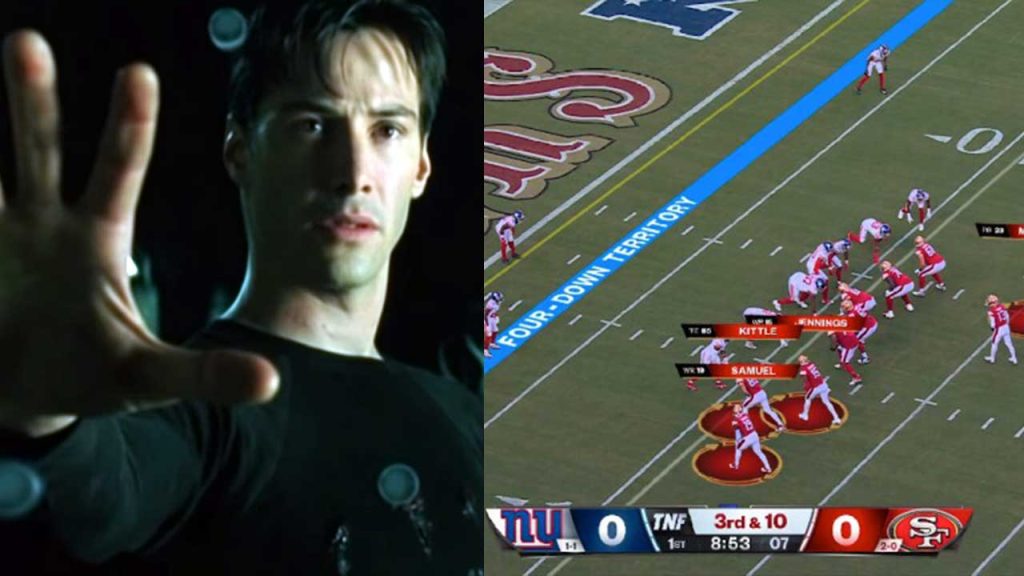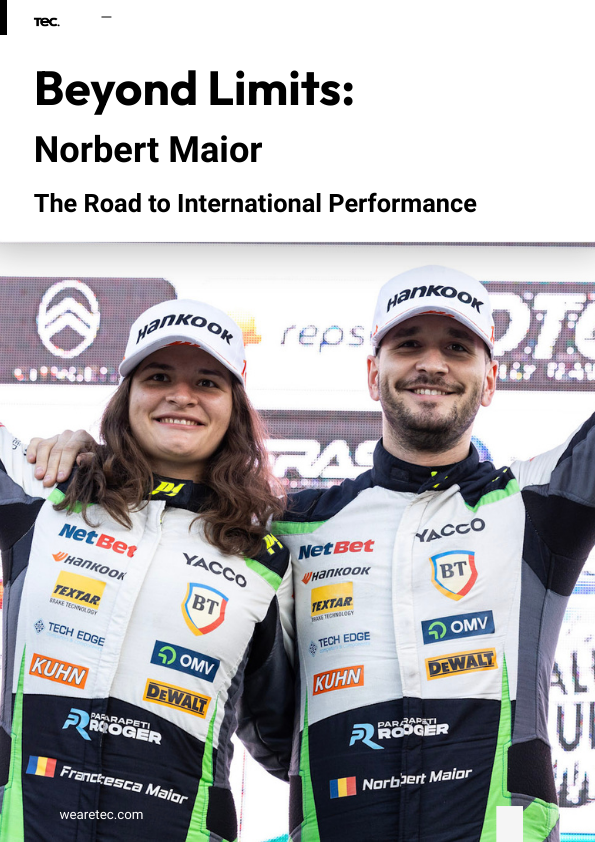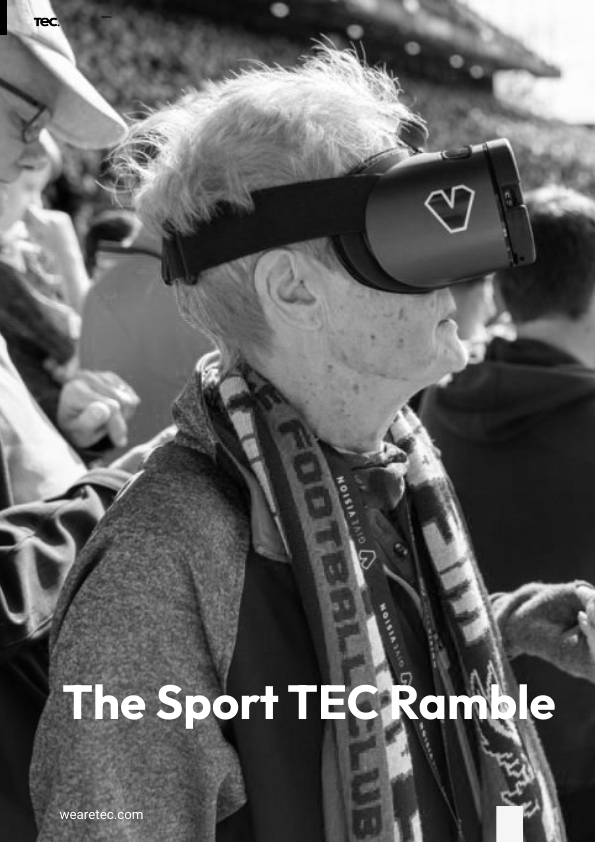“I Don’t Know The Future. I Didn’t Come Here To Tell You How This Is Going To End. I Came Here To Tell You How It’s Going To Begin.”
Last weekend, as incessant downpours battered the UK, I found myself sheltering at home with my two boys and deciding it was time for a movie. After the usual arguments and negotiations, we settled on late 90’s Sci-Fi classic “The Matrix”. As we marvelled at Keanu’s bullet dodging and comedy karate poses, my mind wandered to the rather more positive reality we currently enjoy, compared with the movie’s dystopian outlook.
SPOILER ALERT: the future presented in the Matrix sees artificial intelligence as the architect of humankind’s downfall; a world where people “are no longer born but grown” functioning as fuel cells, with their minds enslaved in an ultra-real, virtual reality that the likes of Meta and Microsoft can only dream about (for now…
Fast forward quarter of a century and, while the apocalyptic nature of AI’s endgame is still up for debate, there can be no argument that we are starting to see its transformative effective on pretty much all areas of modern life, including elite sports. AI creates possibilities for data to be captured, processed and analysed faster and more comprehensively than ever before, and these possibilities are now being harnessed to improve the way sport is played and experienced.
Fans – especially younger ones – are buying into the more utopian potential of AI in sport, with a recent IBM study showing that just under 60% of 18-29 year olds believe that AI will improve the sports experience. But what of the sports themselves? What are the organisers doing to ensure their athletes and fans realise the full benefits from AI technologies and which leagues are doing it the best?
In terms of performance, all sports are embracing the transformative effects of understanding the data around key actions and using it to improve strategies, whether that’s around player acquisitions, team tactics or substitutions. AI is speeding up the analysis involved in these reactive measures, but it is also being used to empower a more proactive approach to protecting athletes’ wellbeing. For example, the NFL, in partnership with AWS, has created The Digital Athlete “a virtual representation of an NFL player that can be used to better predict and eventually prevent player injury”.
AI is also being used to drive operational efficiencies. For example, Formula 1 – again in partnership with AWS – have applied generative AI to their root cause analysis (RCA) work in order to more effectively identify and address technical issues and thereby “maintain peak operational performance during races, minimise downtime and ensure a seamless race for teams, drivers, and spectators.”
While the performance and operational benefits are clear, AI perhaps has the greatest potential when it comes to turbo charging the personalisation and data visualization that rights holders can offer fans.
First, there is the greater choice AI enables in what you can watch. In recent years, multi-player events like Wimbledon and the Masters have trialled AI powered commentary, which gives fans greater choice in the number of matches they can follow live.
Then there is how you get to watch it. At this year’s All Star Game, The NBA unveiled its new generative AI tool, “NB-AI” which promises to redefine he digital viewing experience for fans, not least through the power to convert live action into a Spiderman themed animation!
These early AI-led personalisation initiatives have not been without hiccups but they very much point the way forward, enabling fans to connect with sport in the way they want to…and the way the want to increasingly involves sophisticated data overlays.
Independent research has shown that the majority of sports fans – more than 80% – agreed that “graphics and virtual elements made them feel more immersed and interested in the sports content” and generative AI is being used to provide a new broadcast experience for fans.
In addition to driving performance benefits, the NFL’s partnership with AWS is also powering a number of new features for Amazon’s alternative stream of Thursday Night Football, “Prime Vision with Next Gen Stats”. These include Prime Target and Defensive alerts which use machine learning models to analyse the unfolding action and then highlight for viewers at home which players are most likely to receive the ball and their probability of getting tackled.
Another league using AI to enhance its broadcast experience is SailGP. The international sailing series is renowned for its innovative approach to technology, which includes the successful trial of AI-powered camerasthat use specialist anti-collision technology to improve the safety of teams and athletes, while also enhancing the broadcast experience for fans watching at home. By predicting the future position of the boat, the cameras identify where the action will take place, making sure fans watching live get the best coverage. The AI cameras can also be used to highlight individual crew members and power graphic overlays on screen.
From performance benefits to personalisation and peak viewing angles, AI is changing sports but the possibilities for improvement extend far beyond this. It’s being used to improve fan interaction via dedicated chatbots, like the NHL’s PuckGPT or digital humans like Lottie at The Open Championship. It’s used to schedule NFL matches and curate historical content. Hell, it’s even been lined up by the Premier League to improve VAR for offside calls.
So, the Matrix seems to have got it wrong for now. Far from being scourge of mankind, artificial intelligence is powering positive changes in sport, with major leagues harnessing its potential to deliver real benefits to athletes, fans and officials alike. The sophistication and use of AI have progressed massively over the past decade, but we’re only just scratching the surface in terms of its capabilities and the benefits it can bring. It is down to teams, leagues and federations to keep innovating with AI to unlock new improvements in performance, wellbeing, safety and in creating a personalised, immersive experience for fans.
TEC are specialists in sport and live events technology, working with leading rights holders like European Athletics to power their digital platforms. For TEC’s tips on how to prepare digitally for a live event check out The TEC List.





